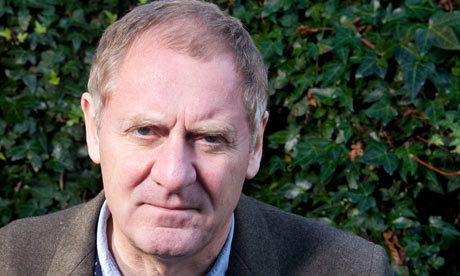
The former poet laureate Sir Andrew Motion has said the government is poised to "wreck the countryside" unless it rethinks a liberalisation of the planning system that comes into full force across England on Wednesday.
Motion, who is president of the Council for the Protection of Rural England, described the simplified national planning framework as "a builders charter" as it became clear that more than half of local councils stand to lose detailed control over planning decisions, at least in the short term.
Planning experts said many local authorities would overnight become more vulnerable to property developers making speculative applications because town halls that have failed to draw up local plans or identify a five-year supply of deliverable sites will have to decide applications under a broad national policy of a "presumption in favour of sustainable development".
Karen Charles, director of planning at the property consultancy DTZ, said: "The threat was that if you don't have an up-to-date plan the floodgates will open and there could be an influx of development. That threat is still there and from Wednesday is very real."
Only 46% of councils have signed off a local plan, which is supposed to identify suitable building sites and describe the type of development the community is and isn't willing to accept.
"Developers will be more willing to take a punt," said Stuart Robinson, head of planning at the estate agent CBRE. "If local councils haven't identified that supply, they are vulnerable to speculative applications which they may find difficult to refuse."
The CPRE and the National Trust have called on the government to extend the 12-month transition period for the planning upheaval beyond Wednesday, which Motion said was "proving to be groundbreaking in all the wrong ways".
He said: "Developing greenfield sites unnecessarily and with inadequate local consultation is entirely the wrong way to make sure that we get the new homes the country so badly needs."
The number of households is expected to grow by an average of 232,000 a year in the next two decades, but just 146,420 homes were built in the last financial year. Nick Boles, the planning minister, has accused councils of dragging their feet in allocating sites and last week told developers he wanted to "flush out" areas that did not offer up enough land.
A Department for Communities and Local Government spokesman said people already had "a bigger say on development than ever before through neighbourhood and local plans.
"There very strong protections are in place to safeguard the green belt and protect other important areas, such as areas of outstanding natural beauty," the spokesman said. "Planning approvals are up but there has been no increase in appeals. Councils should focus on getting up-to-date locally decided plans in place."

